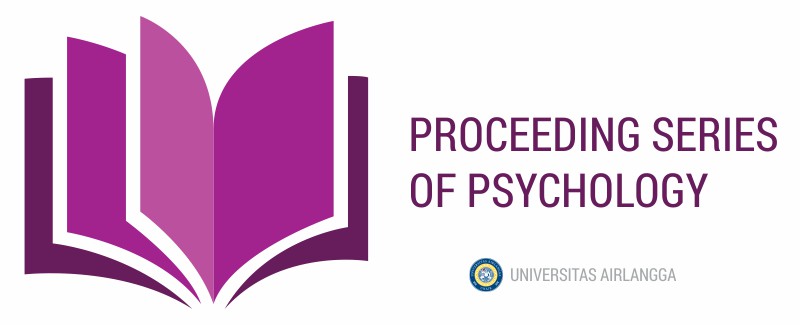Factors Influencing Personal Growth Initiative in Athletes With Disabilities (Para-Athletes): Scoping Review
Kata Kunci:
Athlete, Disability, Personal Growth Initiative, Psychology, SportAbstrak
Although a lot of evidence has emerged from previous research studies showing that athletes with disabilities (Para-Athletes) do not have too many differences with non-disabled athletes in the aspects of social, emotional development, and personality characteristics. However, several limited studies show that Para-Athletes are still treated differently and receive treatment such as discrimination, difficult or limited access, isolation, and socio-economic problems. Para-athletes need no pity from those gifted with perfection. They want equal opportunities to compete and focus on developing their potential. This systematic review aims to synthesize the factors that influence the Para-Athlete personal growth initiative in Indonesia. We followed and used a protocol of selected reporting items for the PRISMA systematic review. Database regarding PGI in Para-Athletes searched. In total, 25 studies that met the inclusion criteria were reviewed in this study. After completing the thematic analysis of existing studies, it was found that the existing factors in athletes such as attitude, self-acceptance, willingness to change, formation of self-esteem/self-concept, and self-determination influence PGI. Several other factors emerge as having more complex influences, namely meaningfulness and life satisfaction, as well as psychological well-being. This illustrates that PGI emerges as a factor supporting the success of para-athletes in life and careers as athletes. Several recommendations from the systematic review report emerged as material for consideration for use in further research.
Referensi
Asch, A. (1984). The experience of disability: A challenge for psychology. American Psychologist, 39(5), 529.
Asken, M.J. (1991). The challenge of the physically challenged: Delivering sport psychology services to physically disabled athletes. The Sport Psychologist, 5, 370–381.
Bragaru, M., Dekker, R., Geertzen, J. H., & Dijkstra, P. U. (2011). Amputees and sports: a systematic review. Sports medicine, 41, 721-740.
Braun, V., & Clarke, V. (2006). Using thematic analysis in psychology. Qualitative research in psychology, 3(2), 77-101.
Gallagher, P., & Desmond, D. (2007). Measuring quality of life in prosthetic practice: benefits and challenges. Prosthetics and Orthotics International, 31(2), 167-176.
Greenwood, C. M., Dzewaltowski, D. A., & French, R. (1990). Self-efficacy and psychological well-being of wheelchair tennis participants and wheelchair nontennis participants. Adapted Physical Activity Quarterly, 7(1), 12-21.
Hutzter, Y., & Bar‐Eli, M. (1993). Psychological benefits of sports for disabled people: A review. Scandinavian Journal of Medicine & Science in Sports, 3(4), 217-228.
International Paralympic Committee. (2012). History of the Paralympic movement. Retrieved April 25, 2012. Retrieved from http://oldwebsite.paralympic.org/export/sites/default/Media_Centre/Media_Information/2008_07_Paralympic_History_long.pdf
Kirkby, R. J. (1995). Wheelchair netball: Motives and attitudes of competitors with and without disabilities. Australian Psychologist, 30(2), 109-112.
Kokun, O. M., Baranauskienė, I., & Shamych, O. M. (2018). The influence of sports on paralympic athletes’ personal development. Social Welfare: Interdisciplinary Approach, 8(1), 124-131.
Krotee, M. L. (1979). A Cross-Cultural Analysis of the Pervasiveness of Sport and Physical Activity: Partners in Sport and Physical Education,(Elsewhere in the World). Physical Educator, 36(3), 149.
Martin, J. J. (1999). A personal development model of sport psychology for athletes with disabilities. Journal of Applied Sport Psychology, 11(2), 181-193. doi:10.1080/10413209908404199
Martin, J. J. (2015). Determinants of elite disability sport performance. Kinesiology Review, 4(1), 91-98.
Martin, J. (2012). Mental preparation for the 2014 Winter Paralympic Games. Clinical Journal of Sport Medicine, 22(1), 70-73.
Martin, J. J., Malone, L. A., & Hilyer, J. C. (2011). Personality and mood in women’s Paralympic basketball champions. Journal of Clinical Sport Psychology, 5(3), 197-210.
Martin, J. J., & Mushett, C. A. (1996). Social support mechanisms among athletes with disabilities. Adapted Physical Activity Quarterly, 13(1), 74-83.
Martin, J. J., & Smith, K. L. (2002). Psychological dynamics of disability and sport. In T. Morris & J. Summers (Eds.), Sport psychology: Theory, applications, and issues (pp. 361-384). John Wiley & Sons.
Percy, W. H., Kostere, K., & Kostere, S. (2015). Generic qualitative research in psychology. The qualitative report, 20(2), 76-85.
Ravizza, K. (1998). Humanistic psychology and sport: A critical review. In T. Morris & J. Summers (Eds.), Sport psychology: Theory, applications, and issues (pp. 246-257). John Wiley & Sons.
Ritchie, J., Lewis, J., Nicholls, C. M., & Ormston, R. (2014). Qualitative research practice: A guide for social science students and researchers (2nd ed.). SAGE Publications.
Robitschek, C., Ashton, M. W., Spering, C. C., Geiger, N., Byers, D., Schotts, G. C., & Thoen, M. A. (2012). Development and psychometric evaluation of the Personal Growth Initiative Scale–II. Journal of Counseling Psychology, 59(2), 274.
Vealey, R. S. (1988). Future directions in psychological skills training. The sport psychologist, 2(4), 318-336.
Wheeler, G. D., Malone, L. A., VanVlack, S., Nelson, E. R., & Steadward, R. D. (1996). Retirement from disability sport: A pilot study. Adapted physical activity quarterly, 13(4), 382-399.
Unduhan
Diterbitkan
Terbitan
Bagian
Lisensi
Hak Cipta (c) 2024 Afif Kurniawan, Suryanto

Artikel ini berlisensiCreative Commons Attribution-ShareAlike 4.0 International License.


